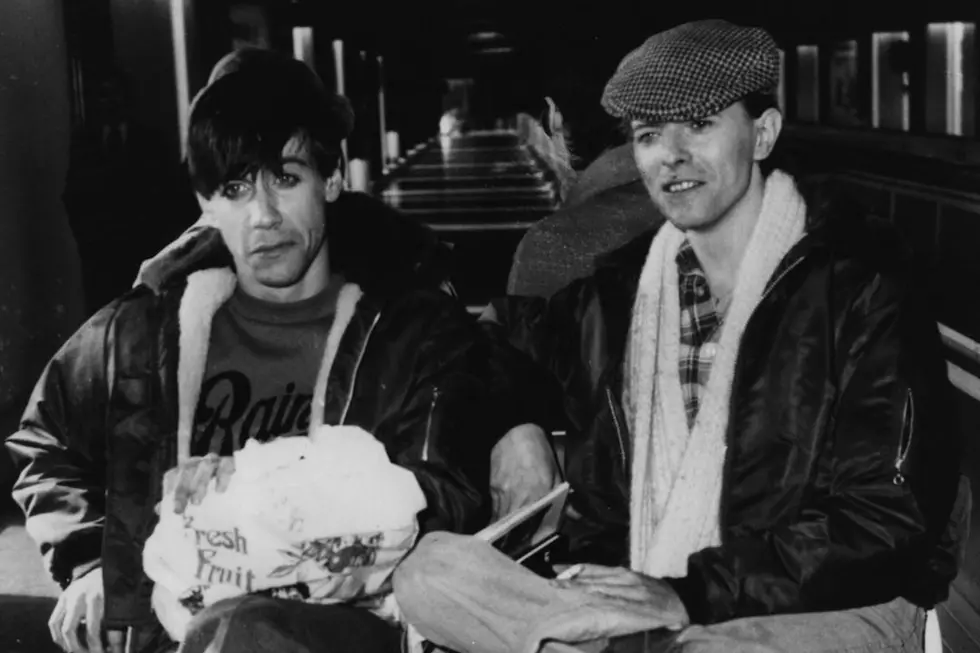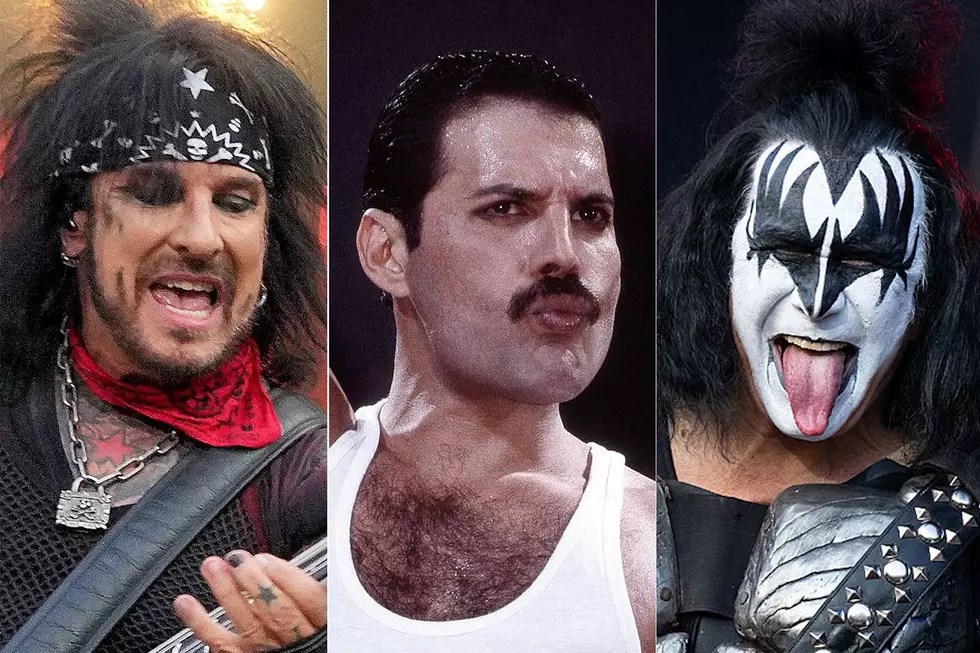
How David Bowie Saved Iggy Pop’s Life
Iggy Pop found himself at a loss following the dissolution of the Stooges in 1974.
A spiraling drug habit led to time spent in a mental-health facility in 1975, with the intent to clean up. Pop had few visitors, with the notable exception of David Bowie.
He'd co-produced the Stooges' second album, 1973's Raw Power, just as Pop's substance abuse was ramping up. "Very few people recognized the quality of the Stooges' songwriting," Pop later recalled in the compact-disc liner notes for Raw Power. "It was really meticulous – and to his credit, the only person I'd ever known of in print to notice it among my peers of professional musicians was Bowie. He noticed it right off."
Bowie seemed to re-appear at just the right moment. Pop joined him on 1976 dates in support of Bowie's Station to Station, effectively introducing himself to the world of large-scale international touring.
Bowie wasn't a perfect role model: Cocaine was his main drug of choice in the mid-'70s. That led the pair to Berlin, where Bowie and Pop would attempt to wean themselves off their respective substance addictions. "Well, both Iggy and I felt like it might be time to clean up, so — we were very smart about it — we went straight out of L.A., to the heroin capital of Europe: Berlin," Bowie joked in a 1997 interview, "but you know something? We were totally unaware of that."
Aware or not, Berlin was where Bowie and Pop felt a sense of anonymity and freedom that allowed them to focus in a way they hadn't before. Bowie would describe the setting in 1996 as a "haven of creativity." On any given day, Bowie initiated with some kind of musical landscape, followed by discussions about certain words, their definitions and implications. Pop would run with it from there. "I mean, it would take him maybe 10 minutes for Jim to put a really first-class lyric together," Bowie said, referring to Pop's legal name, James Newell Osterberg Jr.
Listen to Iggy Pop's 'China Girl'
A trilogy of Bowie albums eventually emerged, including Low, "Heroes" and Lodger. All of them were marked by a slightly grim yet somehow inspiring tone. Work was also done on Pop's first two solo albums, The Idiot and Lust for Life, both released in 1977.
Bowie was undoubtedly the higher profile between the two, as both of Pop's LPs only reached modest positions on the charts — No. 30 in the U.K. with The Idiot and No. 28 with Lust for Life. But they received a warm critical reception and proved Pop was not content to have his career end with the Stooges. He gave credit to Bowie's diligence in a subsequent discussion with The New York Times.
"The friendship was basically that this guy salvaged me from certain professional and maybe personal annihilation — simple as that," Pop said. "A lot of people were curious about me, but only he was the one who had enough truly in common with me – and who actually really liked what I did and could get on board with it, and who also had decent enough intentions to help me out. He did a good thing."
It was a symbiotic relationship: Bowie played keyboards for several of Pop's live performances around this era, and then, in return, Pop sang backing vocals on Low.
Watch Iggy Pop's 'Lust for Life' Video
"Tempered by the fact that I worked with Jim so much subsequently," Bowie said in 1996. "I appreciate that what, in fact, he is writing, is the great American late 20th-century novel, but he's writing it in musical form. I got to appreciate him as being one of the great lyricists in America. I think that he's ironic, moving, poignant, dangerous, hostile. He contains a wealth of expression in the way that he puts words together."
Pop was nearly 30 years old when he went to Berlin with Bowie, with little idea that he still had decades of music ahead of him. "I learned things that I still use today," he told The Times. "I met the Beatles and the [Rolling] Stones, and this one and that one, and this actress and this actor and all these powerful people through him. And I watched. And every once in a while, now at least, I'm a little less rustic when I have to deal with those people."
Rockers With Hidden Talents
How an Old Beatles Song Connected David Bowie With John Lennon
More From The Moose 94.7 FM










